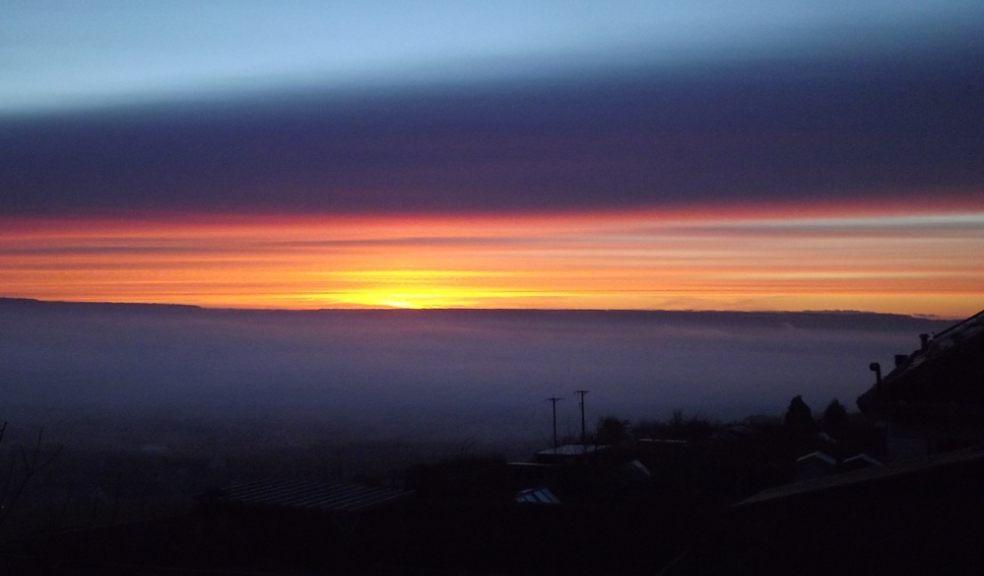
Have we become too focussed on living indoors?
Although we may not be aware of it, in the last few generations in the West we have increasingly become ‘indoor people’. Whereas once almost everyone was a farmer or a gardener and spent most of their time outside, we have overwhelmingly moved to a more comfortable culture of life indoors.
If we analyse our time, most of us will discover that our daily routines are spent in a building or a vehicle. The majority of the UK population will travel in a car, bus or train to work in a school, office, shop, hospital, warehouse, factory, etc. The amount of time we are exposed to the elements is minimal, often reduced to the walk to the garage or station.
There are exceptions – those who work constructing or maintaining or repairing infrastructure (roads, rail, buildings); people engaged in farming or horticulture (although much of this is under glass), conservation work, fishing operations, professional sporting activities.
But for many of us our outdoor lives will be found in a garden, park or allotment, walking and cycling, hobbies and holidays. We walk on cliffs and beaches, moors and country estates, sunbathe on terraces or pool-sides, stroll along streets or participate in pilgrimages.
So what does all this mean for us as human beings and for society? Are there deeper implications for who we are and for the future?
At a very basic level the indoor society is more likely to be more out of touch with the seasons and the rhythms of life. Of course this is not totally the case, but there is a greater probability that we shall be less in tune with the weather, the sounds of birds singing, rain falling on our face, background noise, the wind in our hair, the scent of freshly cut grass, the feel of humus in our hands, and so on.
This lack of contact can mean we give the natural world less concern. Yet, if people do not think the environment is important, they may like trying to hold their breath for 3 minutes, or going without water for a day, or not eating for a week. In reality, air, fluids and foods are easily taken for granted, but are all vulnerable to environmental disruption.
When was the last time you observed the stars? Do you remember the last time you walked bare foot on grass or in mud? Have you experienced total darkness lately? From where you are now sitting, which direction is north? What is the outside temperature right now?
Do we notice how many species of animal are likely to be extinct? Are we alert to the loss of fresh water around the globe? Are we aware of the 60,000 chemicals which we are exposed to in modern times?
Former Archbishop of Canterbury Rowan Williams speaks about ‘disassociation’. We may use the term ‘disconnected’. Both refer to the dangers of being insensitive to the non-human world, the natural cycles of life, and therefore being indifferent to ecological threat and destruction.
If we do not deeply sense Nature we may not want to protect and preserve her. Yet we are not apart from her, we are a part of her. Centuries of philosophy has pushed us to disengage with the Earth and to dominate it, so we do not recognise the fact that if it were not for the top six inches of soil, human beings would not be here. If the bees become extinct humans will follow, but if people disappear the rest of life will carry on. We may like to think we are divine rather than human, but if we are not care-full we will be neither.
It is in being grounded that we know the richness and fullness of the Earth. It is through personal contact with plants, animals, rocks and soil that the beauty and bounty of all life is most appreciated.
The great outdoors is not always ‘nice and easy’; it can be perilous and unpredictable. We may have become at home creatures but we still need to be in touch with the wider world through our senses and our sensitivities.
For those of us of faith, we might go back to the old cliché “one is nearer God’s heart in the garden” – for gardens are points of encounter and revelation. Let’s remember that Creation and Incarnation both refer to the grittiness and embodiment of engaging with the Earth. And it is in engaging more profoundly that we discover the significance of caring for a world without end….
This article was originally published in Devon Churches Green Action news, April 2016













